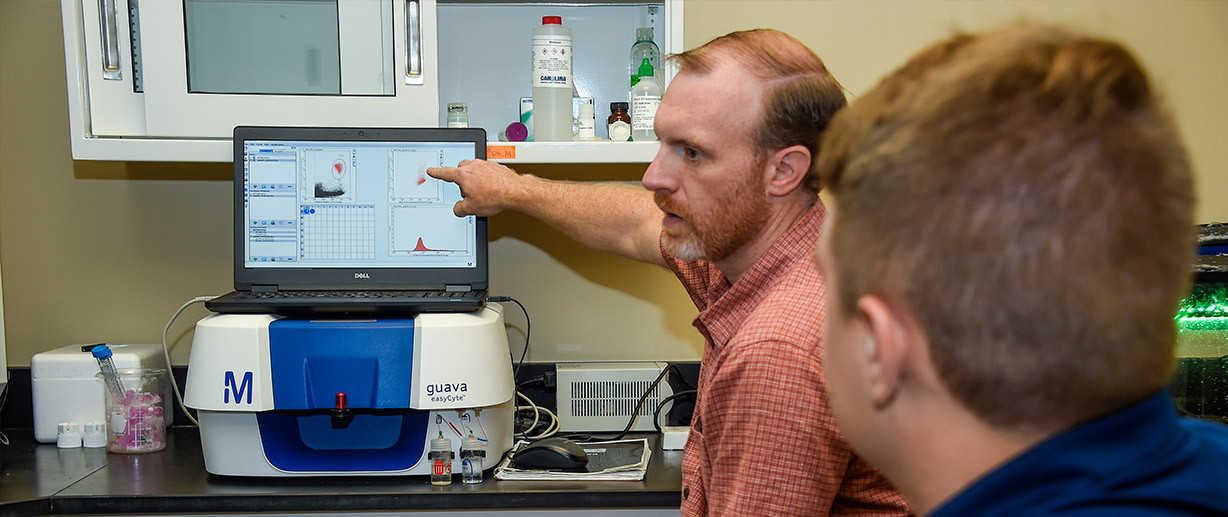Dr. Geoffrey Mitchell, assistant professor of biology, and a few Wofford College students are undertaking research aimed at protecting the health of the world’s oceans by studying coral reefs. The work is being supported by a three-year National Science Foundation (NSF) grant.
The corals responsible for making reefs colorful hubs are becoming bleached as sea temperatures rise. This is making it difficult for many reefs to survive.
“They’re fantastic ecosystems,” says Mitchell. “They are second to the rainforests in the number of species they support.”
Rising ocean temperatures are forcing corals, which are tiny animals, to expel algae, which gives reefs color.
According to the Australian Institute of Marine Science, 80% of the Great Barrier Reef, one of the seven wonders of the world, has undergone coral bleaching.
“It’s happening all over the world,” Mitchell says. “It’s putting stress on their relationship. Why is that stress causing the corals to kick out their algae?”
Mitchell and his students are looking for answers to that question through cellular biology. They’re using a model system to replicate corals and the ocean by using artificial seawater and anemones.
“Their biology is very similar to corals in many ways,” says Mitchell. “We can see replication of coral biology because as we increase the temperature, anemones are spat out.”
Mitchell, who is in his seventh year as a Wofford faculty member, has done postdoctoral research involving cancer, including in-depth studies on how cancer cells become divided. He’s also an avid scuba diver and considered the study of coral reefs as an opportunity to engage undergraduate students to conduct research involving cellular biology.
“At the basic science level, we still don’t know a lot about it, and at the same time it’s a threat to ocean health,” Mitchell says. “It’s like cancer. We’re trying to treat it without having a full understanding of the disease.”
The NSF grant will fund three student researchers each summer for the next three summers and provide funding to support travel to a conference to present their work. Students in Mitchell’s bioinformatics class, which includes computer science and biology majors, will generate data in the fall of 2022.
Chandler Dickert ’23, a biology major from Newberry, South Carolina, and Nathan Faulstich ’23, a psychology major from Lake City, Florida, are working closely with Mitchell on the research. They’re feeding anemones, cleaning tanks, creating mediums for bacteria and growing bacteria while isolating cell samples of anemones and using machines to record rates of mitotic cell division.
“We hope this research can bring further awareness to the reality of global warming on Earth. As the world's climate continues to exhibit more ferocity in terms of weather events and rising temperatures, this precious symbiosis between two biological organisms will not be the only entity affected,” Faulstich says.
